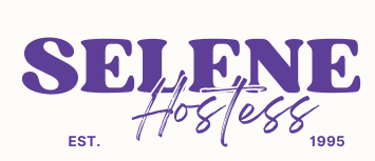Tips for Becoming an Effective Event Hostess
Want to shine as a hostess night club? Learn key tips on guest communication, creating a welcoming vibe, and organizing events. Work in night club confidently while leaving a lasting positive impression on every guest
11/5/20252 min read


Being a hostess is not just about smiling and greeting guests. An effective hostess combines professionalism, strong communication skills, and the ability to create a comfortable atmosphere. Whether it’s a corporate event, product launch, exhibition, or private party, the hostess plays a key role in forming guests’ first impression of the event. Here, we’ll explore the main aspects that can help you become a sought-after and successful hostess.
1. Appearance and Presentation
The first thing guests notice is your appearance. It’s essential to choose a stylish, neat outfit that aligns with the event’s dress code. Clothing should feature clean lines, moderate colors, and elements that highlight professionalism.
Attention to details matters: well-groomed hair, subtle makeup, and polished shoes. Your appearance not only creates a strong first impression but also builds trust with both guests and event organizers.
2. Communication Skills
An effective hostess is a master of communication. You should be able to greet guests warmly, maintain friendly conversations, provide information promptly, and respond politely to questions.
Active listening skills help you understand guests’ needs and create a sense of care and attention. Maintaining positive energy, even in stressful situations, ensures the atmosphere remains welcoming and comfortable.
3. Organization and Attentiveness
A hostess is not only the face of the event but also a coordinator on the ground. You must keep an eye on order, guide guests, help them navigate, and respond quickly to any issues.
Being detail-oriented allows you to anticipate guests’ needs—offering drinks, checking presentation materials, or confirming the schedule of sessions.
4. Flexibility and Stress Management
Events rarely go exactly as planned. An effective hostess can adapt to changes and stay calm in any situation. Sometimes you need to resolve organizational issues quickly, adjust schedules, or deal with unpredictable guests.
Stress resilience helps maintain professionalism and a positive attitude, directly influencing guests’ overall impression of the event.
5. Knowledge of the Event and Guests
Before each event, familiarize yourself with its format, objectives, program, and attendees. This allows you to communicate confidently, provide accurate information, and assist organizers efficiently.
For themed or corporate events, it’s helpful to learn about the company or brand to demonstrate competence and engagement in conversations with guests.
6. Etiquette and Professional Manners
Etiquette is a key aspect of a hostess’s role. Always maintain polite distance, introduce yourself correctly, conduct conversations respectfully, and avoid controversial topics. Politeness and tact help create an atmosphere of respect and trust, while preventing conflicts.
7. Teamwork
Hostesses often work as part of the event team. It’s important to communicate effectively, relay information quickly, assist colleagues, and be part of a smooth, coordinated system. Strong teamwork improves guest service quality and reduces errors.
8. Skill Development and Self-Improvement
Successful hostesses constantly develop their skills: improving communication, learning new languages, understanding basic psychology, and studying modern etiquette. Regular practice and self-analysis help you become a professional in demand at any event.
Conclusion
Being a hostess is an art that combines a polished appearance, professional skills, and the ability to create a welcoming atmosphere. By focusing on communication, organization, flexibility, and self-development, you can leave a lasting positive impression and become an indispensable part of any event.
